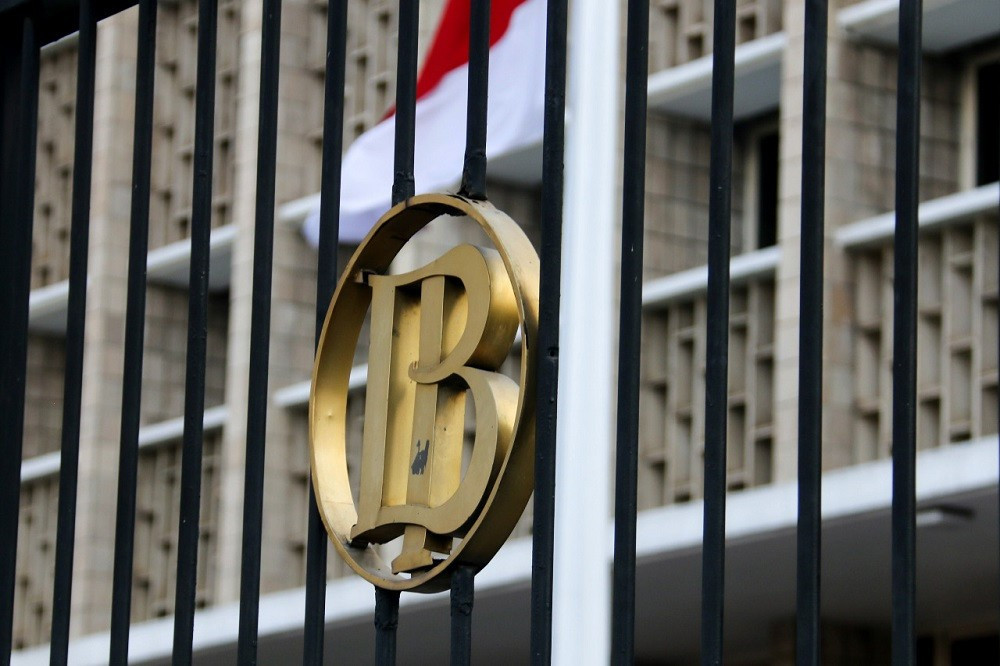Popular Reads
Top Results
Can't find what you're looking for?
View all search resultsPopular Reads
Top Results
Can't find what you're looking for?
View all search resultsSurprise rate cut, growth gambit put rupiah in crosshairs
Change text size
Gift Premium Articles
to Anyone
B
ank Indonesia's rate cut this week stunned markets for all the wrong reasons - investors fear the central bank is bowing to pressure from President Prabowo Subianto to juice the economy, compromising its independence and risking a rupiah sell-off.
Global investors have been increasingly nervous about Indonesian assets following protests in many cities since late August, while the abrupt sacking of respected finance minister Sri Mulyani Indrawati last week stoked fiscal worries.
The interest rate cut on Wednesday, a move not expected by any of the 31 economists surveyed by Reuters, is now raising concerns about the central bank's independence and bringing Prabowo's growing influence into focus as the president pushes ahead with an ambitious goal of lifting growth to 8 percent from the current 5 percent pace.
Bank Indonesia's (BI) shock decision comes as investors worldwide grapple with the rising threat to the independence of central banks, an issue that has been brought to the fore by the repeated attacks on the Federal Reserve and its policymakers by US President Donald Trump and his administration.
Southeast Asia's largest economy has been struggling to push ahead with Prabowo's populist and costly spending plans since he came to power last year.
The worry for investors is that the hard-won fiscal credibility risks being sacrificed by the president's push to speed up growth, leading to a worsening in the current account position and higher inflation, with a politicized central bank unable to keep a lid on it.
"Indonesia is leaning hard on growth," said Howe Chung Wan, head of Asian fixed income at Principal Asset Management. "Policymakers know a sluggish economy and weak jobs market could stoke discontent, so the bias is toward running the economy hot."
"The question for investors isn't whether Indonesia wants growth, but whether it can balance that against currency stability. The rupiah remains the main pressure point, since the country still relies heavily on imports and foreign capital."
The rupiah has slipped 3 percent in 2025, making it the worst-performing currency in Asia and leading to multiple interventions by the Indonesian central bank during the year to defend it.
The currency touched a record low of 16,970 per US dollar in April on fiscal and tariff worries and was last at 16,585. It is one of the few currencies in Asia that has not made gains against the fragile greenback this year.
Indonesia's central bank, Prabowo's office and the finance ministry did not respond to Reuters request for comments.
Mark Ledger-Evans, portfolio manager at Ninety One in London, said fortunately for Indonesia its macroeconomic stability places it in a strong position. Ledger-Evans likes Indonesian bonds but is underweight on the currency.
"The fiscal deficit, government debt, current account deficit and inflation are at low and stable levels [...] we think the central bank will continue cutting the policy rate."
BI has now cut its main interest rate by a total of 150 basis points in the past one year, with markets expecting further aggressive cuts.
"Indonesia's economic growth needs to be further enhanced to match the capacity of the economy," BI Governor Perry Warjiyo said in a statement on Wednesday.
The timing of the cut also stands to benefit the rupiah, analysts say, as the Federal Reserve has just resumed its rate-cutting cycle, which will weigh on the dollar in the near term, providing policy room for BI.
"When the trade-offs between growth and currency stability become more explicit, then BI will need to make harder choices," said Chris Kushlis, chief EM macro strategist at T. Rowe Price
"The market will likely worry that political pressure means it will shift the balance of its mandate toward growth at the sacrifice of currency stability."
In Indonesia, a "burden sharing" deal with BI has jolted investors. Under the agreement, BI will help fund government programs but markets also worry about bill amendment discussions that could expand the bank's mandate to support economic growth and empower parliament to remove its governor.
Howie Schwab, portfolio manager for emerging markets growth at Driehaus Capital, said there is a clear risk to central bank independence and proactive communication about the policy shifts is lacking.
"I do not think the risk premium will revert anytime soon. Indonesia needs to take measures to reassure investors quickly otherwise they risk indefinitely handicapping their markets."
The markets so far have taken in stride the many changes in Indonesia although cracks are appearing under the hood.
The gap between Indonesia short and long-dated bond yields has been widening since April as a cocktail of worries about tariffs, fiscal policies and economic growth unnerve investors.
The spread between 1 year bond yields and 10-year bond yields is at 120 basis points, just shy of levels last seen in January 2023 and way above the 37 basis points in early April.
Indonesia has had a great reputation for fiscal prudence and a central bank that prioritizes FX stability over quick growth, said Trinh Nguyen, senior economist for emerging Asia at Natixis Corporate & Investment Banking.
"Doubts are rising for both."










